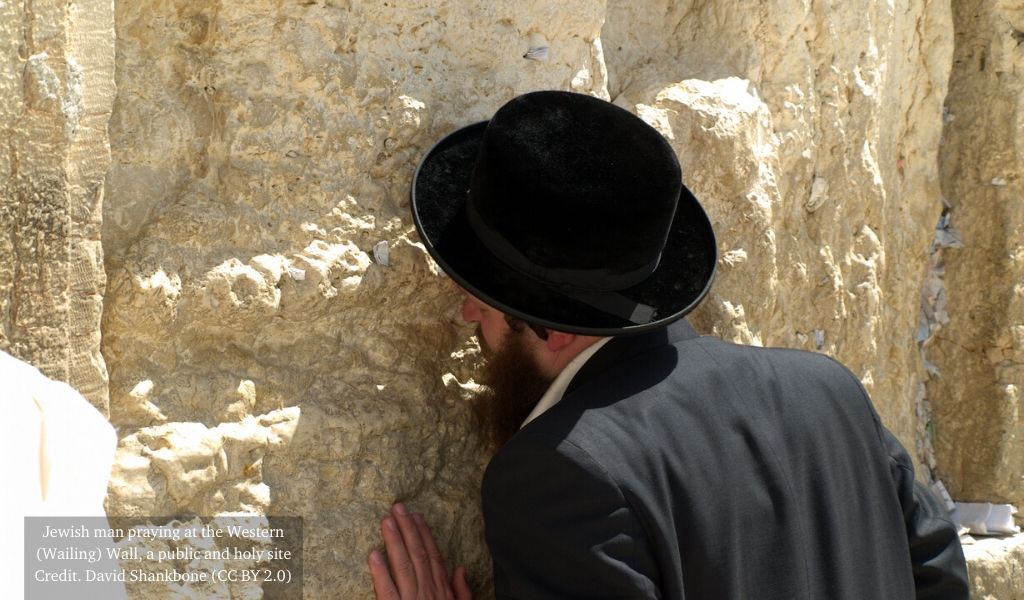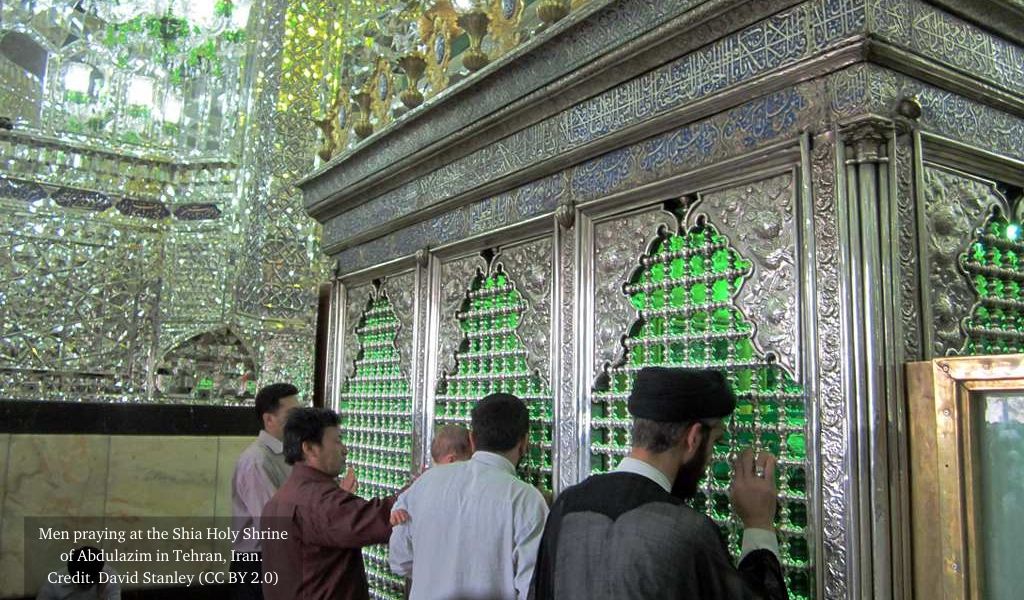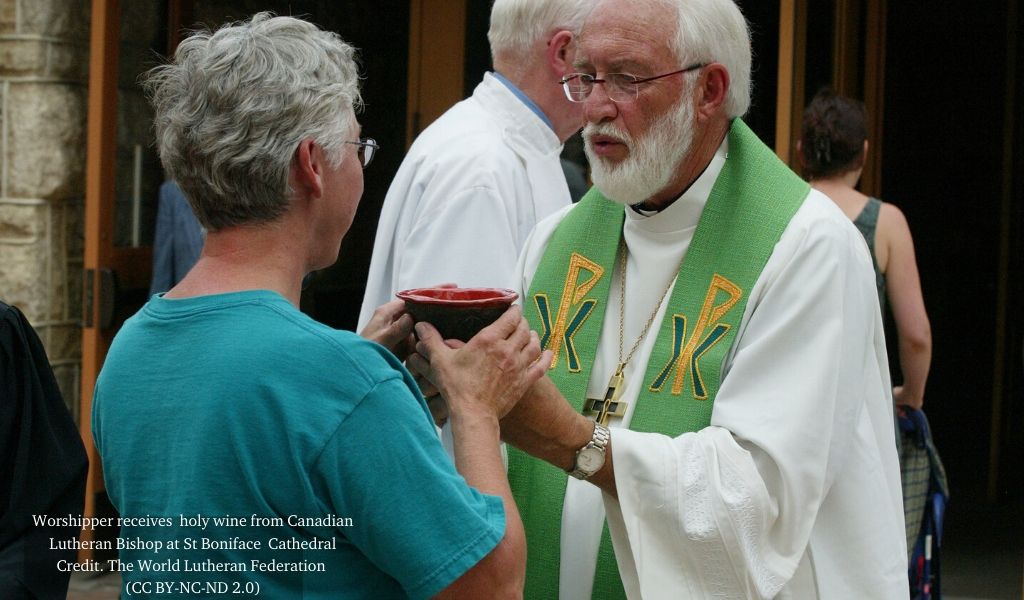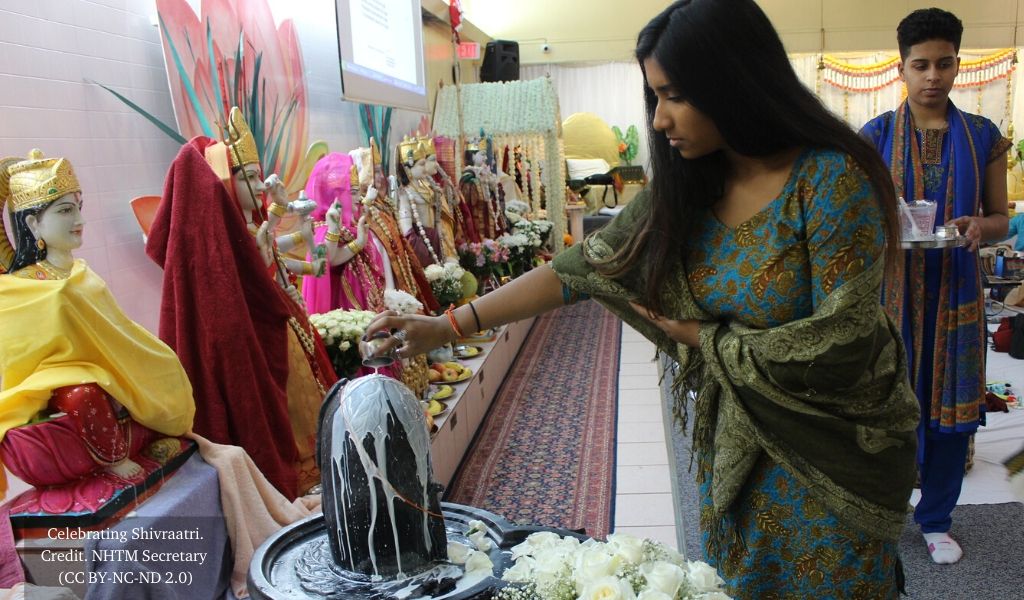Many of the practices and rituals of religions around the world directly contravene public health advice on coronavirus since they can include congregating in large public spaces, hand-based greetings and touching objects considered sacred. In this blog, Professor Mariz Tadros outlines why it’s essential to understand how people express their religion and how there are ways in which communities can adapt their religious practice in order to comply with public health concerns. In other cases, more than adaptation is required: holding to account those who claim to be the guardians of faith is also needed.

The containment of a global coronavirus epidemic will be impossible without understanding and paying attention to how people exercise their right to freedom of religious expression and association. Those who adopt an exclusively secular outlook may consider a containment of people’s freedom of expression and association as an absolute necessity for protection of public health. This is especially in view of the fact that many religious practices and rituals – such as congregating in large public spaces, hand-based forms of greetings, touching objects considered sacred – are in contravention with public health measures being advised and implemented to contain the spread of the virus.
Yet the notion that the protection of public health is incongruent with freedom of religious expression is far too simplistic and disconnects from the multiple realities on the ground.
Any successful containment effort must address both the physical aspects of mitigating the spread of disease as well as the political and spiritual dimension. There are ways in which communities have adapted their religious practice to comply with public health concerns. In other cases, however, more than adaptation is required: holding to account those who claim to be the guardians of faith is also needed.
Lockdown on religious public spaces
Across the world, several countries are taking drastic measures to contain the virus. These include politically contentious decisions by religious leaders to temporarily halt visits to Holy Sites or collective participation in religious rites and rituals. For example, in an exceptional move, the Vatican has closed St Peters Square and the Basillica in Rome with the Pope having to engage virtually with the faithful instead. Saudi Arabia took the very bold move of cancelling pilgrimages to Mecca and Medina, which last year hosted 9.5 million Muslims pilgrims, so we should not underestimate the significance of this measure.
However, not all religious leaders support such measures, and some go out of their way to defy them.

In Iraq, the government’s decision to close off most religious shrines to the public in an effort to contain the spread of infection, including Karbala, a holy site for the Shia Muslims around the world, has not gone down well with some senior Shia clerics. Moqtada Al Sadr opened the Shrine of El Roda el Hadareya and has published videos on his Facebook page about his daily visits to the shrine of Imam Ali in Najaf, saying he does this to “prevent its closure.”
But beyond such political posturing by leaders such as Al Sadr, is people’s association with the supernatural powers of particular rites, rituals, and practices.
In Iran, the Shrine of Hazrat Masoumeh Fatima in Qom, one of Iran’s holiest places, receives millions of pilgrims every year. As people believe the shrine has healing powers, commentators note that it will be difficult to convince pilgrims that the shrine’s power falls short of protecting against coronavirus. Despite government warnings that those who visit and those who lick shrines will face imprisonment, authorities have not been able to completely stop this practice, one that is believed to have assisted in the spread of the coronavirus.
Some Christian denominations who administer the Eucharist (sharing of bread and wine), share the wine with one spoon administered amongst tens, sometimes hundreds of believers. Suggestions to stop using the spoon to minimise the risk of spreading Coronavirus have been met, in some denominations, with hostility and resistance. The debate as it played out in the Coptic Orthodox church is brilliantly captured in this article by Febe Armanios. Other churches including Protestant, Catholic and Orthodox denominations, who also use the spoon or other shared utensils in the Eucharist, are equally grappling with this issue.

Indeed, when followers of any faith believe that a particular rite, ritual or practice is associated with the miraculous, with wellbeing or with healing powers, this can easily trump any warnings of the health hazard associated with them.
Consequently, the success of enforcing public health measures around coronavirus may ultimately come down to understanding and working with both faith leaders and communities around everyday expressions and rites of faith. Overlooking such practices will affect the enforceability of any public health policy and could have disastrous consequences for disease containment. We saw this exact problem play out during the Ebola pandemic, when it became clear that an understanding (and alternative) to existing burial practices was going to be key to containing the spread of the disease.
Religious practice is reconcilable with public efforts to contain the spread of virus – but with some adaptation
Throughout history, religions have evolved their rituals and practices in the face of politics, war, disease, or simply theological evolution, and, now faced with the threat of coronavirus, many are doing this today, substituting one form of religious expression with another.
For example, churches have found ways to celebrate the Eucharist without the need for a shared spoon-or even wine, yet the services continue. If the situation grows dire, some of these services will be done through livestreaming. Caitlin Rivers, an infectious disease specialist with the Johns Hopkins Center for Health Security perfectly captured this adaptation approach without compromising on people’s right to freedom of expression: “I emphasize the need to find replacements for further transmission opportunities that lower the risk, because attending religious services is really meaningful to a lot of people,” Rivers says. “And I think advising that nobody do that anymore is not a practical solution.”
Similarly, in Iraq, Ayatollah Sistani supported measures to close shrines on health grounds and urgent Shia Muslims to find other expressions of their faith that do not put them at risk.
In this same spirit of adapting, the Jewish leadership issued instructions to not engage in the custom of kissing the mezuzah, a small item encasing a prayer scroll that is attached to doorposts but rather to take its blessings without touching it. Additionally, linking religious custom with the need for public hygiene, the Jewish leadership has encouraged the amplification of the religious practice associated with ritual washing and increased prayers. European rabbis proposed that “At these times, we cannot underestimate the importance of washing hands on all occasions prescribed by halacha,” a method of washing hands with water poured from a cup that is used before performing certain activities, among them eating bread.

Among Hindus, the BAPS Shri Swaminarayan Mandir in London says people can engage in the practice of daily darshan, an exercise of worship that involves “the act of beholding the Deities and divine personalities with reverence and adoration” rather than through a physical visit to a temple.
In all of these cases, the key to the success of adapting freedom of religious expression to public safety concerns was not to vilify people who have a desire to express their faith as being irrational or selfish. Rather it is finding ways from within communities of reconciling their observance of religious faith with observance of public safety considerations. It is a case of substituting, accommodating and adapting one rite, ritual or practice with another, but in a way that is imbued with legitimacy and credibility. This legitimacy and credibility emanates from the ideas and suggestions coming from within the community, who are able to delve into their rich history and myriad ways in which their faith has been practiced. In other words, legitimacy comes from the alternative or adapted practices being put forward from within and not enforced from outside.
Accountability of those who speak in the name of religion as well
The question of who has monopoly over representing and speaking for faith comes to the surface when people are struggling to maintain their expression of religious agency and protect their health.
In Egypt (and in the Diaspora) a group who call themselves the “guardians of the faith” held ground that the use of the spoon in the Holy Eucharist is absolutely essential to the fundamentals of the faith. This is the very same group who are renowned for engaging in a witch hunt against members of the clergy and non-clergy alike who are ecumenical in their views or practices (often naming and shaming them as traitors of the faith) and who have, in the name of protecting Coptic Orthodoxy, launched the most ferocious campaigns against other Christian denominations.
Yet public concerns in Egypt for the spread of coronavirus have enabled members of the Orthodox faith to question this group’s monopoly over representing the Orthodox people and to expose historically the plurality of how the Eucharist is administered. The debate over how to maintain the right to the exercise of religious expression while complying with health safety standards has inadvertently carved open a space for people to challenge “the guardians of the faith”. Those voices on the margins who are still embedded within the faith community drew on historical antecedents, quotes and examples of religious historical figures who are authoritative voices from within the faith to challenge the uniform and rigid interpretation presented by the absolutist.
History tells us that when the status quo seeks to deploy freedom of religious expression as a political instrument to justify lack of accountable governance and the consequences are fatal, people do not adopt a religiously fatalistic stance.
In this brilliant article by Professor Amir Afkhami he recounts how in the cholera outbreak in 1904 in Iran, when alarm bells were ringing about the relationship between religious pilgrimages and the spread of the disease, “the most esteemed grand ayatollah of that time resisted such efforts and accused officials of furthering the aim of Western “infidels” to prevent the Shiite faithful from fulfilling their religious duties” – the similarity of this argument to the one that is being made by several clerics in Iran today in relation to the COVID-19 is striking. Afkhami notes that the cholera epidemic had a tectonic impact on the legitimacy – and viability – of the ruling regime.
The key message that emerges from this is that just because people value their right to freedom of religious expression does not mean they do not simultaneously value their health. Stereotypes of people of faith as being fatalistic followers of leaders who use religious idiom or rhetoric to cover up for violating people’s right to health need to be challenged.
Certainly there will be some whose understanding of the supernatural powers imbued in religion trumps all other consideration but history tells that many people value their right to freedom of religious expression – as well as- their right to effective health systems and accountable governance.